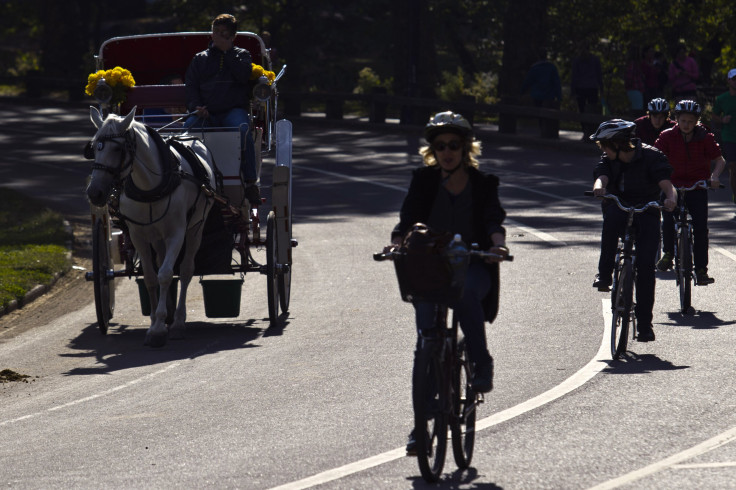Did Strava App Play A Role In Deadly Central Park Cycling Accident?

Strava, the self-described “social fitness” app that allows bicyclists and runners to track their progress and challenge their friends to compete for record speeds, is under scrutiny for potentially promoting antisocial and unsafe behavior among speed-junkie bicyclists trying to break records.
According to a New York Magazine report, the cyclist Jason Marshall, whose collision in Central Park on Sept. 18 with pedestrian Jill Tarlov led to her death, was a regular user of the app. Earlier on the day of the collision, in the same spot, Strava had logged him as speeding over 29 mph in a zone with a speed limit for cars of 25 mph. And the day before the crash, Marshall had tracked his speed against other bicyclists on Strava, placing second fastest in three segments and third-fastest in another, New York Magazine reported. Many of the most popular Strava “contests” in New York City are held in Central Park. Marshall has not been charged.
Each week, 2.5 million Strava members log their GPS tracked times for ”segments,” i.e. locations that users map out; turning any stretch of road, as New York Magazine’s Clint Rainey puts it, “into a multiplayer road race.” The app encourages competition among users to get a “King of the Mountain” (KOM) accolade, based on achieving certain speed thresholds. When a person breaking speed records receives a new KOM for a specific segment, the rider with the previous record is notified.
Some in the cycling community argue that, even though the app can’t be blamed, it’s not helping to make pedestrians any safer, or cycling more careful. Robert Wright, a Financial Times reporter and a cycling blogger for The Invisible Visible Man, wrote of Tarlov's death: "To judge by accounts of Jason Marshall's keen pursuit of records on Strava...his overall, incautious determination to maintain his speed may have been far more culpable than anything specific about his reaction on encountering people crossing the road."
It’s not the first time Strava has faced controversy. In 2010, 40-year-old bicyclist named William "Kim" Flint from San Francisco, where the app originated, died in an accident when speeding down a hill attempting to reclaim a KOM speed title. His parents sued Strava for creating what they called “a wild, wild West culture where [law-breaking] is encouraged and rewarded.” Although the suit was eventually dismissed, Strava was in the news again in 2012 when 37-year-old San Francisco cyclist Chris Bucchere, using Strava, plowed through pedestrians after running two stop signs and a red light. He struck and killed 71-year old Sutchi Hui, who was crossing the crosswalk with his wife. Bucchere pled guilty to felony vehicular manslaughter – a first for a bicyclist -- and received 1,000 hours in community service with 3 years probation.
In a statement to New York Magazine’s Daily Intelligencer, a Strava spokesperson said that the Tarlov death “is a tragedy and we offer our sincere condolences to all involved” and that it reminds riders they must “use good judgment and understand the responsibility that they have to act within the limits of the law.”
Popular blogger Bike Snob NYC launched a #nostrava Twitter campaign asking cyclists to stay off the app for an entire weekend the week Tarlov died. But he also wrote on his blog, “To blame Strava at all is to take responsibility from the riders."
© Copyright IBTimes 2024. All rights reserved.






















